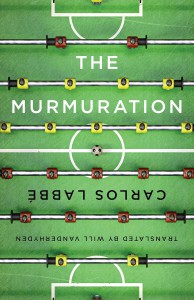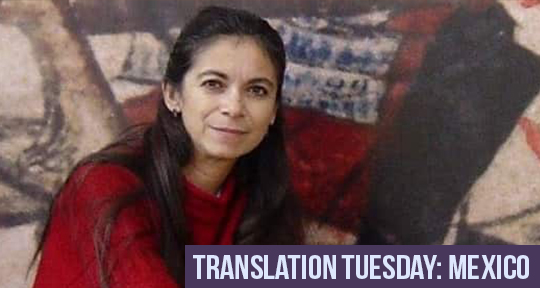This month, we introduce two extraordinary novels erecting vivid, immersive narratives upon the intricate sociopolitical histories of their respective nations. From Chile, Carlos Labbé builds an intricate match of class warfare and collective action against the backdrop of professional soccer; and from Iran, Ghazi Rabihavi tells the tragic story of two queer lovers as they navigate the repressions and tumults of pre- and post-Revolution Iran.

The Murmuration by Carlos Labbé, translated from the Spanish by Will Vanderhyden, Open Letter, 2024
Review by Samantha Siefert, Marketing Manager
Carlos Labbé’s The Murmuration begins like a monologue from The Twilight Zone: a robust voice draws you aboard the night train from Temuco to Santiago, and a conspiracy of uncertainty and intrigue quickly follows. Cigarettes smolder, nail polish glistens, and a retired sports commentator’s hot cup of matico tea steams into the noir-film night. Suddenly, you find yourself hurtling through the darkness on Schrödinger’s train, where a director of the Chilean national soccer team may or may not be asleep in her first-class train car—or perhaps she is in the dining car, having a drink with the sports commentator. Furtive eyes dart about, noting every detail, but Labbé’s experimental style calls reality itself into question, letting linguistic artistry lead the way in an investigation of Chilean identity, representation, and collective memory.






